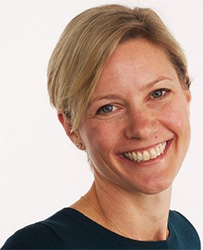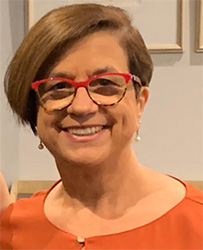Shared Care for Allergy Bulletin March 2023 - Edition 1
Thank you for subscribing to the Shared Care for Allergy Bulletin. This will be a regular newsletter from the National Allergy Council to let people know what is happening with the Shared Care for Allergy project.
Improving access to care
Our goal is to improve the health and wellbeing of Australians living with allergies by making it easier for people to access the best care. The Australian Government Department of Health has funded the National Allergy Council to progress this important work.
What do we mean by shared care?
We believe that people with allergies should receive the right care at the right time in the right place by the right healthcare professional(s).
![]()
Introducing the project co-leads
This National Allergy Council project is being led by Dr Katie Frith, representing the Australasian Society of Clinical Immunology and Allergy (ASCIA), the peak medical body for allergy and immunology in Australia and New Zealand, and Ms Maria Said (AM), representing Allergy & Anaphylaxis Australia (A&AA), the peak national support organisation for people with allergies in Australia.
We asked Katie and Maria to share how they think shared care will help people living with allergic disease in Australia.

Dr Katie Frith (Children’s Allergy Specialist, ASCIA)
"We know a large and increasing number of Australians live with allergic diseases, many chronic, and access to care can be difficult with long waiting times. We have a fantastic opportunity to support healthcare professionals to work effectively together to provide timely evidence-based care to patients with allergic diseases."

Maria Said AM (Chief Executive Officer, A&AA)
"Living with allergies is often complex and many people have to manage life with more than one allergic disease. The earlier people can access evidence-based information and support, the sooner they learn to live life with allergic disease rather than have it impact life and control their future. Accurate and consistent advice improves management and therefore, health and wellbeing. We need the team of health professionals caring for each person to guide and treat them in a consistent way with easy-to-understand advice and treatment. Our hope is that this will help with compliance of everyday management and decrease confusion, and anxiety."
Come on the journey with us
During May and June this year we will be asking people with allergies, their carers and communities, healthcare professionals, hospital and health service staff, Primary Health Networks, health administrators, governments and other interested people and groups an important question:
How do we improve access to quality care for people with allergic disease?
We are organising face-to-face sessions across Australia so we can come together and talk about allergy care. By visiting different cities and regions we hope that the local community and their healthcare professionals will work with us to look at what could be done to improve allergy care.
A team effort
National Allergy Council staff will work with the project co-leads and working groups to progress the Shared Care for Allergy project.
- A Shared Care for Allergy Working Group has been set up to guide and support the project. The Working Group is made up of people with different expertise, backgrounds and experience, to make sure the project has broad and inclusive input.
- Subgroups will be set up to progress work around education and training for healthcare professionals and standards of care for allergic diseases.
- ASCIA and A&AA, as partner organisations of the National Allergy Council, will also be undertaking some of the project work in relation to education and training and consumer consultation and resource requirements.
- The National Allergy Centre of Excellence (NACE) will provide research support.
How to get involved
Come along to one of our community engagement sessions being held in May and June. The dates and venues will be provided in our next Bulletin and look out for them being advertised on social media. There will be other ways for people to give input into the project if you are not able to attend one of these sessions.
To contact us, please email
Stay informed about the National Allergy Council
Stay informed by remaining subscribed to our newsletters and follow us on social media via Facebook, LinkedIn, Instagram or Twitter.

